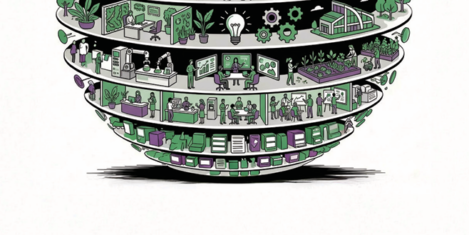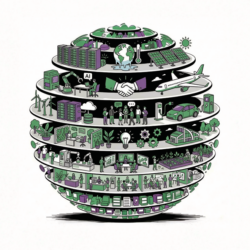May 23, 2013
UK employee engagement and productivity lags behind most of world
You might regard the concept of employee engagement as just a new way to describe industrial relations, but there is a growing body of research that UK employers need to do more to keep their employees on side. According to the latest missive, low employee engagement and lagging productivity is the greatest employment challenge facing UK business in 2013. Global research by Right Management found that this was the key concern for one in three (31 per cent ) employers compared to a global average of just one in five (21 per cent ) HR professionals, suggesting that after years of economic uncertainty and doing ‘more with less’, the UK workforce has reached a productivity impasse. (more…)


































February 23, 2026
AI will either save work or destroy it. Apparently.
by Jo Sutherland • AI, Comment